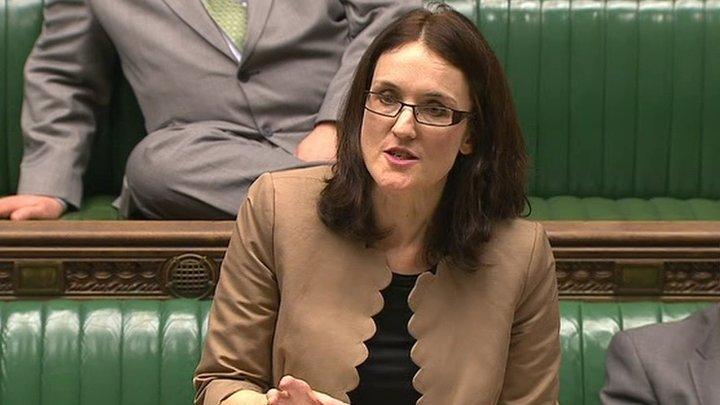Union flag protests cost police over £7m
- Published
- comments
The cost of policing flag protests in Northern Ireland since they began early last month is believed to be over £7m.
It has been confirmed that the cost of policing protests and dealing with disorder during the first two weeks, from 3 to 17 December, was £3.8m.
Policing has remained largely the same since, apart from a holiday lull.
The figure was revealed as police came under attack with petrol bombs and fireworks for a sixth night in east Belfast.
Bricks and bottles have also been thrown by loyalists in Templemore Avenue, off the Lower Newtownards Road.
The Police Service of Northern Ireland (PSNI) said it could not comment on the final cost because it did not have up to date figures.

The trouble in east Belfast on Tuesday evening was not on the scale of the previous five nights
A campaign of street demonstrations started just over a month ago, when Belfast councillors voted on 3 December to limit the days when the union flag flies over Belfast City Hall.
Earlier on Monday, Secretary of State Theresa Villiers said Northern Ireland was being "held to ransom by protesters".
She called for an end to all street demonstrations over flags - even peaceful protests - following a fifth night of rioting in east Belfast.
Rioters used hatchets, sledgehammers and petrol bombs to attack police and their vehicles on Newtownards Road.
The PSNI fired plastic bullets and used water cannon in response.
'Profoundly depressing'
Speaking on BBC Radio, Ms Villiers said: "It's not acceptable that those who say they are defending a union flag are actually doing it by hurling bricks and petrol bombs at police. It's disgraceful, frankly."
The secretary of state described the continuing rioting as "profoundly depressing" and said she was "fully supportive of the great efforts the PSNI are making to crack down robustly on those who continue to break the law".
She called for the protests to "come off the streets" in order to allow local politicians to hold all-party talks over flags and emblems.
"We will not be able to get a solution if Belfast and Northern Ireland are being held to ransom by protesters," she said.
Three police officers were injured and eight people were arrested on Monday night, bringing the total number of arrests since the flag protests began to 104.
Four people were later charged in relation to the violence and appeared in court on Monday.
"All these protests have to stop altogether, even the peaceful protests are causing disruption and even they are making it far more difficult to have a proper dialogue to resolve these kinds of issues," Ms Villiers said.
'National security'
She added: "Not only is it disgraceful in terms of injuries to police officers and people who live in the areas affected by the riots, it's also doing huge damage to Northern Ireland's image abroad".
The Shadow Secretary of State for Northern Ireland, Vernon Coaker said the riots had become a matter of "national security" after the police said senior loyalist paramilitaries had been involved in the rioting.
Mr Coaker told the BBC's Good Morning Ulster programme: "That makes it, as far as I'm concerned an issue of national security and I think we need, and the secretary of state will need, to make an assessment of what the chief constable has said about that and what needs to be done."
The Labour MP also said the Westminster government had a continuing responsibility to support the Northern Ireland peace process and he condemned the latest violence.
"People may disagree with decisions that are taken but in a democracy you cannot have violence on the streets as a way of trying to bring about change to those decisions.
"The first rule of any democracy, the first rule of any political leader is actually to say that violence is totally unacceptable and cannot be justified and in that sense in London, and indeed in Stormont, we stand with the PSNI and those who are trying to prevent the violence from occurring," Mr Coaker said.
The Northern Ireland Independent Retail Trade Association (NIIRTA) has again called for the protests and rioting to end.
"The disruption to traders not just in Belfast City Centre, but in East Belfast is becoming extremely serious," said NIIRTA chief executive Glyn Roberts.
"Many of the areas in east Belfast are crying out for new jobs and private sector investment which is not going to happen while rioting and violence continue.
"This is a political problem and can only be resolved by politics and we would urge all of our political leaders to go the extra mile to resolve the flag issue and other grievances and above all to take this problem off the street"

Water cannon were used during a fifth night of rioting in east Belfast
Monday night was the first time the council met since the vote was passed in December.
Up to 400 people attended what police described as a "largely peaceful" protest outside the building between 18:00 and 19:00 GMT.
The Department for Culture, Media and Sport has designated 18 days on which the union flag is flown in Northern Ireland in 2013. It may also be flown during the opening and closing of Parliament by the Queen.
- Published8 January 2013
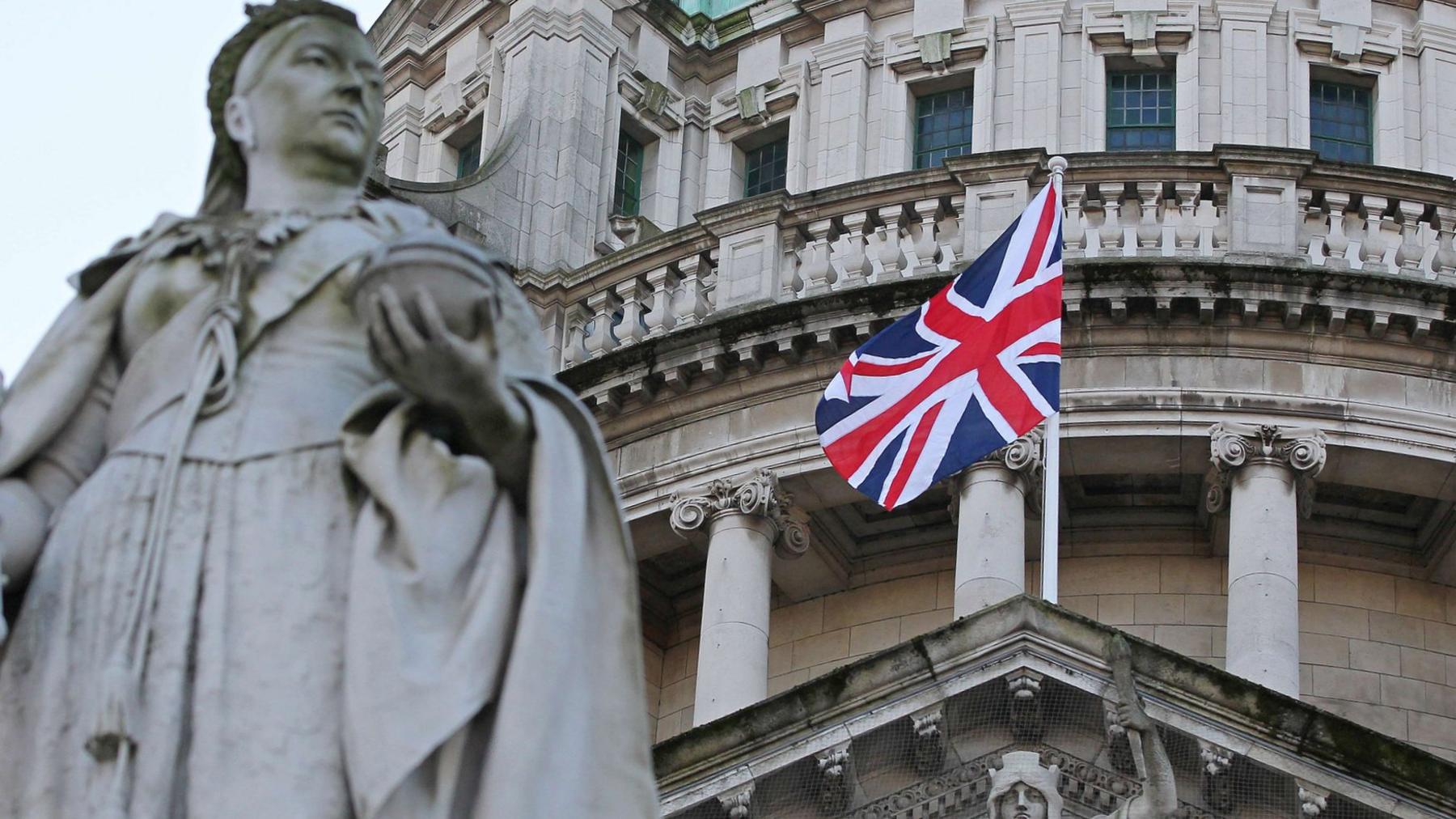
- Published8 January 2013
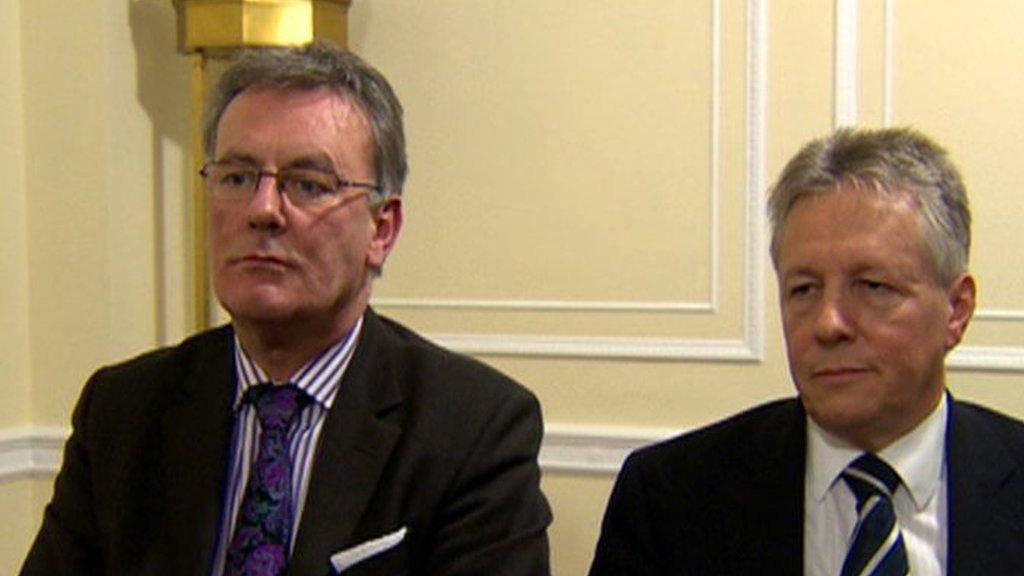
- Published8 January 2013
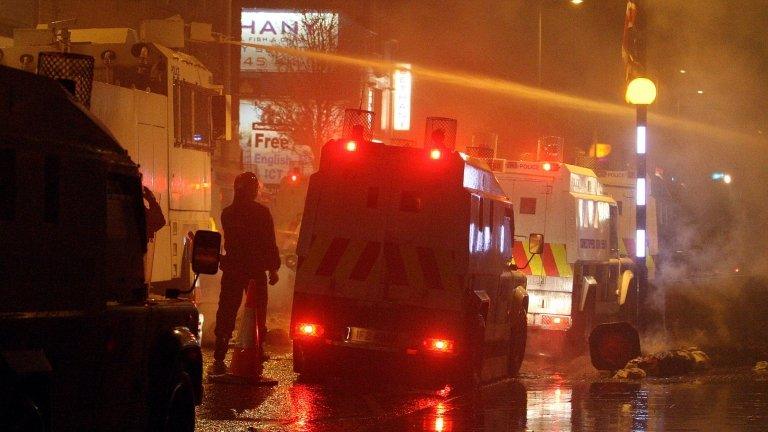
- Published28 November 2014
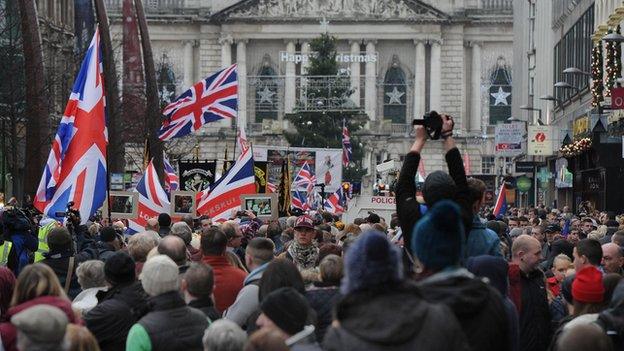
- Published4 January 2013
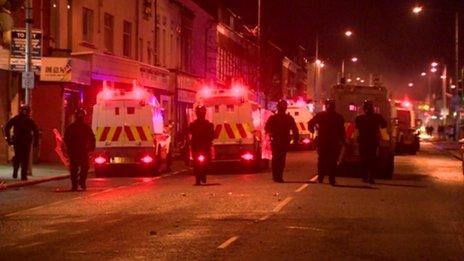
- Published11 December 2012
